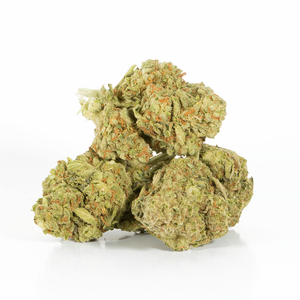Table of Contents
- Understanding the Digestive System
- What is CBD?
- The Endocannabinoid System and Its Role
- Safety and Side Effects of CBD
- FAQs
Does CBD help with the digestive system? Curious about the potential benefits? We’ve got you covered! In this guide, we dive into the exciting realm of CBD and its impact on your gut health. Get ready to uncover the fascinating connections and discover how CBD could potentially revolutionize your digestive well-being.
Understanding the Digestive System
Before we delve into the potential benefits of CBD for the digestive system, let’s first have a brief overview of the digestive system itself. The digestive system is a complex network of organs and processes that work together to break down food, absorb nutrients, and eliminate waste from our bodies. It plays a crucial role in our overall well-being as it ensures the proper functioning of our bodies by supplying the necessary nutrients and energy.
Maintaining a healthy digestive system is vital for optimal health. When the digestive system is not functioning properly, it can lead to various issues such as indigestion, bloating, constipation, diarrhea, and even more serious conditions like irritable bowel syndrome (IBS) or inflammatory bowel disease (IBD). Therefore, it is important to explore potential ways to support and promote digestive health.
What is CBD?
CBD, or cannabidiol, is a compound found in the hemp plant. It is one of the many cannabinoids present in cannabis plants, but unlike its counterpart THC (tetrahydrocannabinol), CBD is non-psychoactive. This means that consuming CBD does not cause the “high” commonly associated with marijuana use.
CBD interacts with our body’s endocannabinoid system (ECS), which plays a role in regulating various bodily functions, including digestion. The ECS consists of cannabinoid receptors found throughout the body, including the digestive tract. By interacting with these receptors, CBD may potentially influence digestive processes and provide benefits for the digestive system.
How CBD Interacts with the Digestive System
The digestive system is an intricate network of organs and processes responsible for breaking down food, absorbing nutrients, and eliminating waste from the body. To understand how CBD may help support digestive health, it’s important to explore how it interacts with the digestive system and the body’s endocannabinoid system (ECS).
c
The endocannabinoid system (ECS) is a complex cell-signaling system found throughout the body, including the digestive tract. It plays a crucial role in regulating various bodily functions, including digestion. The ECS consists of receptors, endocannabinoids (cannabinoids produced by the body), and enzymes responsible for synthesizing and breaking down these cannabinoids.
CBD’s Interaction with ECS Receptors
CBD interacts with ECS receptors, namely the CB1 and CB2 receptors, which are found in different parts of the body, including the digestive system. By interacting with these receptors, CBD may influence digestive processes and potentially provide benefits for digestive health. However, it’s important to note that the exact mechanisms of CBD’s effects on the digestive system are still being studied.
Potential Benefits of CBD on Digestive Functions
CBD has been studied for its potential benefits on digestive functions. It has shown promise in the following areas:
Inflammation Regulation: CBD’s anti-inflammatory properties may help reduce inflammation in the digestive tract, which can be beneficial for conditions such as irritable bowel syndrome (IBS) and inflammatory bowel disease (IBD).
Pain Relief: CBD’s interaction with the ECS may help modulate pain perception, potentially alleviating abdominal pain and discomfort associated with digestive issues.
Gut Motility: CBD has shown potential in regulating gut motility, which is essential for proper digestion. By influencing the contraction and relaxation of intestinal muscles, CBD may help manage conditions like constipation or diarrhea.
Nausea and Vomiting: CBD has been explored for its antiemetic properties, making it a potential option for managing nausea and vomiting, commonly experienced in various digestive disorders or as side effects of treatments.
Potential Benefits of CBD for Digestive Issues
Research, both scientific studies and anecdotal evidence, suggests that CBD may offer potential benefits for various digestive issues. Let’s explore some of the common digestive issues where CBD shows promise:
Irritable Bowel Syndrome (IBS)
IBS is a common disorder characterized by abdominal pain, bloating, changes in bowel habits, and discomfort. CBD’s anti-inflammatory and analgesic properties may help alleviate these symptoms and improve the overall well-being of individuals with IBS.
Inflammatory Bowel Disease (IBD)
IBD encompasses conditions such as Crohn’s disease and ulcerative colitis, which involve chronic inflammation of the digestive tract. CBD’s anti-inflammatory effects may help reduce inflammation and provide relief for individuals with IBD.
Gastroesophageal Reflux Disease (GERD)
GERD is a condition where stomach acid flows back into the esophagus, causing heartburn and discomfort. CBD’s potential ability to regulate gut motility and reduce inflammation may help manage symptoms associated with GERD.
Nausea and Vomiting
CBD has shown promise in reducing nausea and vomiting, both as symptoms of various digestive disorders and as side effects of treatments such as chemotherapy.
Appetite Regulation
CBD’s influence on appetite regulation is complex. While THC is commonly associated with stimulating appetite, CBD may help regulate excessive appetite and support healthy eating habits. This can be beneficial for individuals with digestive issues related to appetite dysregulation.
Safety and Side Effects of CBD
When considering the use of CBD for digestive health, it’s natural to have concerns about its safety. It’s important to address these concerns and understand the potential side effects associated with CBD usage.
Common Concerns Regarding CBD’s Safety Profile
CBD is generally considered safe for most people when used responsibly. However, it’s important to keep the following considerations in mind:
Quality and Purity: To ensure safety, it’s crucial to purchase CBD products from reputable sources that adhere to high-quality standards. This helps minimize the risk of contamination with harmful substances.
Drug Interactions: CBD has the potential to interact with certain medications. It’s advisable to consult a healthcare professional if you are taking other medications to assess potential interactions and ensure the safe use of CBD.
Regulation and Legal Status: CBD regulations vary by country and state. It’s essential to be aware of the legal status of CBD in your jurisdiction and comply with local laws.
Potential Side Effects of CBD
While CBD is generally well-tolerated, some individuals may experience mild side effects, including:
Dry Mouth: CBD may temporarily reduce saliva production, leading to a dry sensation in the mouth. Staying hydrated can help alleviate this discomfort.
Drowsiness: In some cases, CBD may cause drowsiness or fatigue. It’s advisable to avoid operating heavy machinery or driving until you understand how CBD affects you personally.
It’s important to note that the severity and likelihood of side effects can vary from person to person. If you experience any persistent or concerning side effects, it’s recommended to discontinue CBD use and consult a healthcare professional.
Conclusion
In conclusion, CBD holds promising potential in supporting digestive health. From reducing inflammation to managing discomfort and regulating gut motility, its benefits are noteworthy. However, safety should be a priority, and consultation with healthcare professionals is crucial. As research advances, we will gain deeper insights into CBD’s effects on the digestive system. Stay informed, make informed choices, and collaborate with healthcare experts to enhance your digestive well-being.
For high-quality CBD products at affordable prices, we recommend checking out XpressGrass, an online dispensary renowned for its commitment to providing top-notch offerings. Explore their range today and embark on your journey toward improved digestive health.
FAQs
Can CBD oil help with digestion?
CBD oil has shown the potential to support digestion through its anti-inflammatory properties and interaction with the endocannabinoid system (ECS).
What are the benefits of CBD for the digestive system?
CBD may reduce inflammation, alleviate abdominal pain, regulate gut motility, and provide relief from symptoms of digestive disorders.
How does CBD interact with the gastrointestinal tract?
CBD interacts with ECS receptors in the gastrointestinal tract, potentially regulating gut motility and reducing inflammation.
Can CBD relieve symptoms of digestive disorders like irritable bowel syndrome (IBS)?
CBD has shown promise in relieving symptoms of IBS, including abdominal pain and bloating, but further research is needed to fully understand its effectiveness.
Is CBD effective for managing nausea and vomiting?
CBD may help manage nausea and vomiting, whether caused by digestive disorders or treatment side effects. It interacts with serotonin receptors to provide potential relief.





